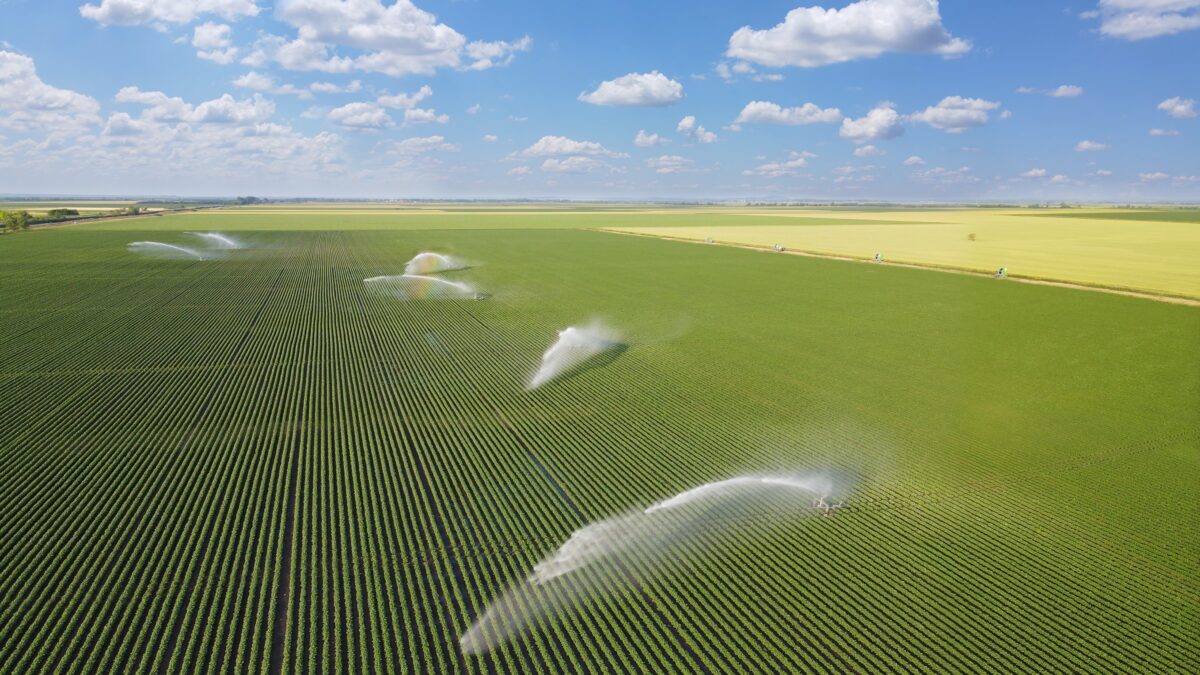Lack of water invariably results in environmental issues for the agricultural sector, giving rise to challenges for farmers and their crops. Technology may be able to provide the answer, helping address drought caused by climate change and bolstering the sustainability and effectiveness of irrigation systems.
Four such technologies which may contribute to more effective irrigation are presented below:
1. Smart irrigation systems
New irrigation systems enable rational water management through advanced technology which improves water use and reduces waste. Agriculture accounts for 32% of overall water usage, and traditional methods often lead to excessive watering, which both harms plant health and wastes valuable resources.
Smart irrigation systems address these challenges by employing sensors to monitor soil moisture and weather conditions. These sensors are placed in the soil and collect data in real time regarding humidity levels and environmental factors that may impact a crop.
The system then uses this data to determine the best use of water, ensuring that plants are watered sufficiently and at the appropriate time.
2. Advanced water pumps
Water pumps incorporate technologies that enable alternating water pressure, speed and movement, ensuring effective water dispersal. These advanced pumps adapt their speed and pressure based on data collected in real time by integrated Internet of Things (IoT) sensors. Smart systems streamline the performance of water pumps, significantly reducing water loss.
3. Solar-powered irrigation
More and more irrigation systems incorporate renewable energy solutions, employing wind, solar or hydroelectric energy to power their water distribution infrastructure. Making the most of these renewable energy sources, farmers can minimise their carbon emissions and dependence on fossil fuels. For example, small-scale solar panels, wind turbines and hydroelectric systems can produce additional power without increasing electricity consumption.
4. Drip irrigation
This advanced irrigation method involves delivering water directly to plant roots, thus ensuring effective water use. Drip irrigation systems employ compact, low-pressure devices to distribute water precisely where it is needed. This targeted approach conserves water and bolsters overall crop health, ensuring that each plant receives the appropriate volume of water.










